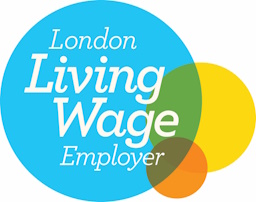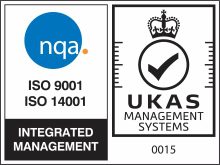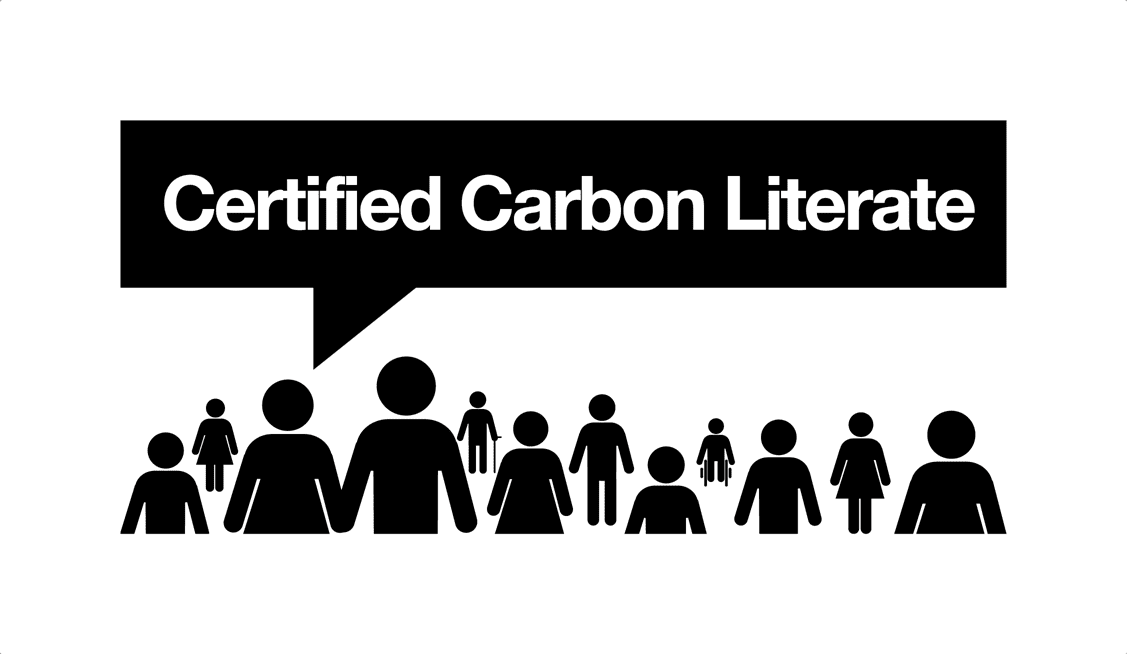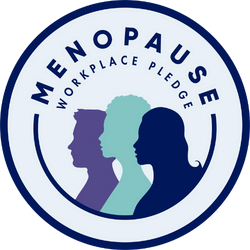Ukraine – we stand together
#StandWithUkraine
I, like you all, have watched in disbelief and horror as the unthinkable became grim reality last week when Russia invaded Ukraine.
The naked and brutal aggression of Putin is pitted against the dogged resistance and bravery of the shattered Ukrainian nation and its proud and determined people led by unbowed president, Volodymyr Zelensky.
They are fighting for their freedoms and a future, values that we ourselves have taken for granted for so long, and which now seem imperilled by one man and his grossly misguided delusions of rebuilding a lost empire, whatever the cost and by whatever increasingly barbaric methods it takes.
Staffordshire Chambers of Commerce stands firmly with Ukraine, and we will do everything we can to demonstrate our support.
I know that many businesses and individuals are organising the collection of vital supplies of clothing, blankets, sleeping bags, medical supplies, nappies, and other baby supplies for transportation to the Ukrainian border.
The Agie and Katie Polish restaurant in Burslem is one such business collecting supplies for Ukraine. At the Chambers, Sonia Bhattle is coordinating a collection o supplies in conjunction with her friend’s Telford based business.
The Government has announced that it will double the number of Ukrainians eligible to come to Britain to 200,000 and I know that private landlords are already looking at ways in which they can house the additional refugees. I am sure that as I write this there are countless initiatives, locally and nationally that are reacting to the swiftly escalating refugee crisis that is unfolding.
If you would like to help refugees, Ukrainian and others, you can offer emergency accommodation through the refugeecouncil.org.uk or roomforrefugees.com. They will support you every step of the way in providing this much-needed shelter as refugees only have a short period of time to try and get their lives more organised.
Many of our Staffordshire businesses are involved with trade with Russia and Ukraine and we are here to offer our support on all aspects of that trade through our international trade team based at the Chambers. If you need support on any international trade issues, you will find the contact details here, or call 01782 202222.
I fear we will see an escalation in violence and destruction in Ukraine and we need to brace ourselves for some dark days.
Putin had gambled on dividing opinions and loyalties in the West. However, by implementing punitive sanctions and condemnation, Europe and its allies have already shown Mr Putin that we are as one in our condemnation of his aggression.
We will continue to support the Ukrainian people in whatever way we can. Trading conditions will be difficult, prices will rise, and the flow of goods and services will be affected. However, this is a price we all must pay to defend democracy and the right to freedom and peace.
If you would like to donate any supplies for Ukraine, please email Sonia sonia.bhattle@staffordshirechambers.co.uk
Please let us know if there are any Ukraine initiatives you would like us to publicise.
And as ever we are here to help with all your business needs, and you can contact us by calling 01782 202222 or info@staffordshirechambers.co.uk
Warmest Regards
Sara
Policy Spotlight with Rhouda: Why are fewer people employed now compared to before the pandemic?
Despite the PM stating that 430,000 more people are now in work compared to before the pandemic, the head of the UK Statistics Authority, Sir David Norgrove, said that the number of people in work was estimated to be 660,000 fewer than before the pandemic. He suggested that the Prime Minister had excluded the fall in self-employment numbers when making the claim.
Through the Staffordshire Chambers Employment, Skills and HR Forum, our members have highlighted the difficulty to find good quality staff as well as retaining the current staff that they have. The number of job vacancies from November 2021 to January 2022 rose to a new record of 1,298,400 which is an increase of 513,700 from its pre-coronavirus level (ONS data). Firms are struggling to attract and retain talent and the situation has been made more difficult due to the pandemic, as more workers are keen to be employed by a company that offers flexibility. The pandemic has created a need for new jobs with new demand.
Sara Williams, CEO of Staffordshire Chambers of Commerce, said: “The skills and staff shortages which are being experienced by firms in different sectors across the nation has been ongoing for the last few years due to Brexit and the pandemic.
“Employers understand how difficult it is to get good quality employees who have a sense and purpose towards the business, and with the job market being so buoyant the fear of losing reliable and skilled workers is increasing.
“Chambers across the network have been urging the government to help people access rapid retraining opportunities for in-demand jobs so that businesses have access to skilled workers at a much faster rate. It is also critical that more support is provided for older workers to pivot to more sustainable jobs in a progressive workforce.”
So why are unemployment rates the highest they have been since the start of the pandemic if there are so many jobs in the market?
In the current job market, employees have the opportunity to be more demanding. Businesses are finding that fewer young people are applying to vacant positions than before. One of the reasons suggested has been due to the fact that places of education encourage younger people to stay in education rather than discuss job opportunities and apprenticeships.
It is important that firms are able to meet the needs of their employees so that they can ensure that their workforce is as productive as it can be. However, some firms, especially those in the manufacturing and construction sectors, fear that despite offering apprenticeships and higher salaries, fewer people are willing to work in sectors that struggle to offer flexibility such as remote and hybrid working or flexible hours.
Staffordshire Chambers is keen to connect businesses with places of education so that young people are aware of the job opportunities available to them and the progression that they can make by working within certain sectors. Key partnerships are crucial at this time as improving the UK workforce will support the country’s productivity and international competitiveness.
- Published in News
Sara’s Blog: Living with Covid plan and the Queen’s Green Canopy initiative
On Monday this week, Prime Minister Boris Johnson announced the Living with Covid plan, which will end all remaining Covid restrictions.
This includes the legal requirement to self-isolate following a positive test and will see the end of contact tracing, as well as the need for fully vaccinated close contacts to test for seven days.
And, from 1st April, the testing programme is being significantly scaled back with the end of free lateral flow tests.
The ending of restrictions is broadly welcomed by the Chambers and businesses battered by two years of crisis caused by the pandemic. However, the Government now needs to set out practical steps to help businesses adjust to the lifting of remaining restrictions, which while providing a boost to consumer confidence, leave several helpful questions for businesses unanswered.
Whilst lifting restrictions will likely boost consumer confidence and further revitalise an economy, the Prime Minister was also right to stress the dangers associated with the emergence of new variants and the need for considered pragmatism.
The removal of free mass testing will please Treasury officials in the short term but does little to assure us that any future spread of the virus will be contained without the testing infrastructure in place that’s worked so well over the last two years.
Business also needs clear guidance on employer liabilities and the removal of Covid-19 from risk assessments; otherwise, they could face lengthy and costly legal battles, which could dampen recovery prospects.
Firms are still struggling with huge overheads and price pressures – removing national restrictions won’t suddenly make these issues disappear.
The Government needs to use the upcoming Spring Statement to set out a blueprint on how they will tackle problems such as financial support for those struggling to pay energy bills, maintain lower VAT levels, and consider further reform of the business rates system. Also, the Government must not pass public decisions on to business owners, who are not public health experts.
We will continue to interpret how these changes are likely to impact Staffordshire businesses and press the Government to provide the details required to give businesses the confidence they need to look ahead with a renewed sense of optimism.
If you have any concerns or issues you would like to raise around the ending of Covid restrictions, please email info@staffordshirechambers.co.uk or join the discussion in our Virtual Members’ Lounge at Virtual Members’ Lounge.
The Queen’s Green Canopy initiative
This week we have planted a tree at Commerce House as our contribution to supporting the Queen’s Green Canopy (QGC) initiative.
The QGC is a unique tree planting initiative that has been created to mark Her Majesty’s Platinum Jubilee in 2022, inviting people from across the United Kingdom to “Plant a Tree for the Jubilee”.
Everyone from individuals to voluntary youth groups, villages, cities, counties, schools and corporates are encouraged to play their part to enhance our environment by planting trees during the official planting season between October 2021 and March 2022. Tree planting will commence again in October 2022, through to the end of the Jubilee year.
With a focus on planting sustainably, the initiative encourages tree planting to create a legacy in honour of The Queen’s leadership of the nation, which will benefit future generations.
As well as inviting the planting of new trees, The Queen’s Green Canopy will dedicate a network of 70 ancient woodlands across the United Kingdom and identify 70 ancient trees to celebrate Her Majesty’s 70 years of service. To find out more about the QGC, click here.
Cop 26 last November already seems a distant memory, especially as global events have recently moved on. Still, we must act in our business and home environments as we move towards Net-Zero.
We must continue to develop the green infrastructure to help nurture human wellbeing, nature and biodiversity, which will all, in turn, play their part in improving our air quality.
And a special mention goes to Chamber members DJ Ventures for their help with planting the tree.
To find out more about the QGC, click here.
More information about our Environmentally Conscious Staffordshire Campaign can be found at: Environmentally Conscious Staffordshire – Staffordshire Chambers
If you want to talk to us about any business issues, including funding, you can call our switchboard on 01782 202222 or call the Stoke and Staffs Growth Hub Helpline on 0300 111 8002 or email: info@staffordshirechambers.co.uk
- Published in News
PM announces ‘largest and most severe package’ of trade sanctions on Russia.
Russia’s invasion of Ukraine, which began in the early hours of yesterday morning, has stirred the UK to impose the “largest and most severe package of economic sanctions that Russia has ever seen” that would “hobble” the country’s economy, Prime Minister Boris Johnson told MPs at 5pm yesterday.
As the invasion of Ukraine unfolded across the day, Johnson gave some detail on planned sanctions – focusing mainly on the finance, defence and technology sectors – with more to follow in the coming days.
Export Support Service Expanded
Johnson’s statement to the House of Commons came as the Government said it will be expanding its Export Support Service to help businesses trading with Russia and Ukraine to deal with the invasion’s trade implications. He urged businesses worried about trade to contact the service.
The Export Support Service helpline, contactable on 0300-303-8955, has had its hours extended through to the end of the weekend, from 08:00 – 22:00 Thursday-Sunday inclusive.
Alternatively, companies can access the ESS landing page which also features a dedicated link for Ukraine and Russia enquiries.
Not all exports to Russia have been sanctioned, however, sanctions do include:
– Dual-use export licences to Russia covering components that can be used for military purposes to be suspended
-Legislation to prohibit a wide range of hi-tech exports to Russia, including semiconductors, aircraft parts and oil refinery equipment
Further sanctions include:
– Legislation to prohibit Russian companies from raising finance on UK markets
– Sanctions against more than 100 individuals, entities and their subsidiaries
– An imminent ban on the Russian airline Aeroflot
Detailed information on the full range of sanctions can be read here.
At the Chamber, we are still processing Export Documentation for non-sanctioned goods to both Ukraine and Russia. Our International Trade Team can be contacted here.
We will of course keep you updated on the rollout of sanctions and any counter-sanctions imposed by Russia on the UK.
Our thoughts are with the people of Ukraine at this most difficult time.
An update on developments in Ukraine
Everyone at Staffordshire Chambers hopes there will soon be a peaceful resolution to the situation in Ukraine. Our thoughts are with all those affected in Ukraine and across our Global Network.
A full-scale attack was launched by Russia on Ukraine in the early hours of this morning. Revised UK sanctions on Russia were announced earlier this week. These will be strengthened during the day. We will provide further updates as they become available.
The Department for International Trade (DIT) recommend that concerned companies trading with Ukraine and Russia contact the Export Support Service (ESS) on 0300-3030-8955. The ESS helpline hours are being extended between now and the end of the weekend, from 08:00 – 22:00 Thursday-Sunday inclusive. DIT will review this on Monday to examine the case for out of hours provision. Alternatively, companies can access the ESS landing page which also features a dedicated link for Ukraine and Russia enquiries.
EU sanctions came into force late last night, including import bans from Donetsk and Luhansk, and export bans on selected goods and services to those territories. These will apply to EU commercial entities.
The British Chambers of Commerce is assessing the business impact and has written to the UK government today to ask about the support available for business. We will provide further information as and when we receive it from UK government.
You can contact the Chambers’ International Trade team, here.
- Published in News
Policy Spotlight with Rhouda: PM announces ‘Living with Covid’ Plan
The Prime Minister is set to announce his plans to remove all remaining Covid legal restrictions in England, including the requirement to isolate. Boris Johnson stated that the plans to remove all restrictions “will return people’s freedom” and bring society “towards a return to normality.”
Downing Street has confirmed that anyone who tests positive, and any of their close contacts will no longer have to self-isolate by the end of the week. No.10 have also said that the success of the Covid vaccination programme had put England in a “strong position to consider lifting the remaining legal restrictions.”
The Prime Minister has also set out a timetable for the scaling back on the availability of free coronavirus tests, with the exception of older and vulnerable people as they will continue to have access to them.
Sara Williams, CEO of Staffordshire Chambers of Commerce, said: “The decision to remove the remaining covid restrictions won’t come as a surprise to many as the government have made it clear that living with covid will be the end goal. The news will also come as a relief to many businesses as they can return to normal working conditions and will be less likely to face staff shortages or a decline in consumer spending in the retail and hospitality sectors.
“Despite this, some businesses will be apprehensive to adjust to the new normal as they feel a duty to protect their staff and provide a safe working environment. The pandemic is not over, and as the government begin to re-open the country to a pre-pandemic lifestyle it is now more important than ever for as many people as possible to be fully vaccinated, for their own safety.”
For people to feel confident again and to be able to ‘live with Covid’ it is essential that businesses are provided with a free supply of test kits; this will also aid the UK in shifting the balance towards personal responsibility, allowing people to feel safe and protected whilst going into work. Many firms trialled hybrid and remote working throughout the pandemic and have found it successful. More staff members may feel comfortable working from home especially as there is no obligation for other staff members to self-isolate if they have tested positive.
For business guidance on implementing hybrid or remote working or for HR advice on staff safety and wellbeing, get in touch with sonia.bhattle@staffordshirechambers.co.uk.
- Published in News
Sara’s Blog: Post Brexit EU trade deal findings and quarterly economic survey
There is an urgent need to ease the burden of new legislation following Brexit for our exporters. Recent research across the British Chambers of Commerce network shows there are issues with the EU trade deal that need to be improved. Nearly all the businesses in this research have fewer than 250 employees and these smaller firms are feeling most of the pain of the new burdens in the Trade and Co-operation Agreement (TCA).
Many of these companies have neither the time, staff, or money to deal with the additional paperwork and rising costs involved with EU trade, nor can they afford to set up a new base in Europe or pay for intermediaries to represent them. The issues appear to be on both sides of the Channel with barriers on the Continent as ports seem to have been unprepared.
But if both sides take a pragmatic approach, they could reach a new understanding on the rules and then build on that further.
• 71 per cent of exporters say EU trade deal is not enabling them to grow or increase sales
• Only 1 in 8 exporters think it is helping them grow or increase sales
• Majority think it has pushed up costs, increased paperwork, and delays, and put the UK at a competitive disadvantage.
Overall, just eight per cent of firms agreed that the Trade and Co-operation Agreement (TCA) was ‘enabling their business to grow or increase sales’, while 54 per cent disagreed. For UK exporters 12 per cent agreed that the TCA was helping them while 71 per cent disagreed.
When asked to comment on the specific advantage (for those that agreed) or disadvantage (for those that disagreed) of the trade deal, 59 firms identified an advantage, while 320 cited a disadvantage.
Staffordshire Chambers support the UK Government’s ambition to massively increase the number of firms exporting. If we can free up the flow of goods and services into the EU, our largest overseas market, it will go a long way to realising that goal.
The research, with responses from over 1,000 businesses, has highlighted a host of issues with the UK’s trade deal with Europe. The BCC believes urgent steps should be taken to address these problems so the UK Government’s ambition to increase the number of firms exporting can be met and have five key issues:
1. Export health certificates cost too much and take up too much time for smaller food exporters.
SOLUTION: We need a supplementary deal on this which either eliminates or reduces the complexity of exporting food for these firms.
2. Some companies are being asked to register in multiple EU states for VAT in order to sell online to customers there.
SOLUTION: We need a supplementary deal, like Norway’s with the EU. This exempts the smallest firms from the requirement to have a fiscal representative and incur these duplicate costs.
3. As things stand CE marked industrial and electrical products will not be permitted for sale on the market in Great Britain from January 2023. The same is true for components and spares.
SOLUTION: We need action from the Government to help businesses with these timelines. Many firms are far from convinced about a ban on CE marked goods in Great Britain.
4. UK firms facing limitations on business travel and work activities in the EU.
SOLUTION: Government needs to make side deals with the EU and member states to boost access in this area as a priority for 2022.
5. Companies starting to be pursued in respect of import customs declarations deferred from last year.
SOLUTION: We need a pragmatic approach to enforcement to ensure companies recovering from the pandemic do not face heavy-handed demands too quickly on import payments, or paperwork.
If you want to know anything about trading overseas – from strategies to expertise on the documents you need – you can get help from our international trade team: International Trade – Staffordshire Chambers.
Our latest Quarterly Economic Survey is now open
This is one of the most important times for businesses across Stoke-on-Trent and Staffordshire to complete the Quarterly Economic Survey (QES). The information you provide will help to shape and influence current policy as the data is shared with the BCC, government departments including HM Treasury and the Cabinet Office as well as the Bank of England.
We are keen to hear from firms of all sizes (starts-ups, sole traders, SMEs, medium-sized and large corporations) as it helps to create an accurate picture of the current business landscape. If you could spare just a few minutes to fill in the survey it would be greatly appreciated.
If you want to talk to us about any business issues, including funding, you can call our switchboard on 01782 202222 or call the Stoke and Staffs Growth Hub Helpline on 0300 111 8002 or email: info@staffordshirechambers.co.uk
- Published in News
Policy Spotlight with Rhouda: Latest ONS Trade Figures
The latest GDP figures reported by the Office for National Statistics (ONS) have shown a decrease as the Omicron wave hit in December, leaving retail and hospitality sectors seeing the biggest impacts.
Services output was down by 0.5% in December 2021 while production rose by 0.3% and construction rose by 2.0%. Despite the decrease in services output, both services and construction were above pre-pandemic levels. Output in consumer-facing services fell by 3.0% and this was mainly driven by a 3.7% decrease in retail trade while all other services rose by 0.1%.
Real gross domestic product (GDP) is estimated to have fallen by 0.2% in December 2021. The ONS report identified that businesses in the services sector were the main contributor to GDP’s 0.2% fall.
Sara Williams, CEO of Staffordshire Chambers of Commerce, said: “As the government continue to remove restrictions, it is essential that the right kind of support is provided to businesses. Firms in the hospitality and retail sectors faced great difficulties in the last quarter of 2021 and will continue to struggle under current circumstances with rising inflation, increasing national living wage, increasing national interest rates and rising energy costs.
“In the latest government announcement, it was revealed that households would be supported in dealing with rising energy bills. However, there was no mention of similar policies being put in place for businesses. We would urge government to act quickly so that the country can progress economically.”
Our first Quarterly Economic Survey for 2022 is now live and invites businesses to share their views on the challenges being faced within their industry. This is a great opportunity for us to get a better insight into how businesses have been impacted by recent government announcements and policies and what changes need to be made to help with the UK’s economic progression.
We want to represent businesses in the region. By filling out QES for Q1 of 2022 you can help shape and influence policy thinking. Data from the QES is shared with the British Chambers of Commerce, government departments and the Bank of England. Have your say by filling in the survey here.
Environmentally Conscious Staffordshire Campaign
Last week we were proud to launch our latest campaign in our ‘Environmentally Conscious Staffordshire’ series. Our carbon literacy campaign aims to support businesses develop a greater understanding of the ways in which they can measure their carbon footprint as well as the changes they can make in order to achieve the goal of becoming carbon neutral by 2050.
In order to provide the most effective business advice, we have partnered up with a few of our members to find out how they have managed to reduce their carbon footprint and create an environmentally friendly and sustainable business. To find out more, click here.
If you require any business support or advice, get in touch with Staffordshire Chambers of commerce on 01782 202222 or email info@staffordshirechambers.co.uk.
- Published in News
Guest blog with International Trade: How we’re working towards SDG #16.
Head of International Trade at the Chamber, Rob Lawley, has written a guest blog to explain how the trade team incorporate SDG 16, Peace, Justice and Strong Institutions, into their daily operations to help make the world a safer place.
Peace, Justice & Strong Institutions is the 16th Sustainable Development Goal (SDG) which permeates through many aspects of International Trade and where the Chamber plays a crucial role.
The Chamber will process thousands of Export Documents for local companies each year, with an invoice value totalling over £200m. Many of these goods require an export licence meaning their sale is controlled by Government. Some goods, as one would imagine, are going to require an export licence, for example, military and paramilitary goods. The UK has some of the best companies in the world manufacturing goods in this sector. A recent report suggested that the UK defence sector supports 260,000 jobs and the Government spends £20bn annually in this sector alone.
What’s not obvious are products termed ‘Dual Use Goods’. Many of these products are entirely innocent but there is a very large list of products that fall into this category, some quite surprising for example; computers and software.
So where do we come in? It’s our role to check that all the goods for which we process export documentation and/or customs clearance have the correct licence. This is perhaps one of the most important parts of role. We will not issue the correct documentation or clear goods for export until we are 100% certain that the company is legitimate and has valid licences in place.
Part of our consultancy role is to work with companies, advise them on what type of export licence is required and, in some cases, help them to apply for the licence(s) using the SPIRE platform which is used by the Export Control Joint Unit (ECJU).
In addition to the Chamber monitoring export licences, we are also mindful of companies trading with countries where the UK Government or the United Nations has imposed sanctions. There are many types of embargos, sanctions and other trade restrictions relating to different markets across the world. To us, whenever certain countries are mentioned such as Somalia, Syria, Iran we automatically become cautious but other areas, not in the headlines, are also subject to sanctions for example Argentina and Cape. In many cases exporting is not ‘banned’ from countries with embargos/sanctions, but we have to ensure that only permitted goods are shipped to certain countries. To emphasis this in 2021 we processed goods worth over £5m being shipped to Iran.
Our diligence and monitoring of exports ensures that we are playing our part in this particular SDG and helping to make the world a safer place.
Find out more about SDG 16, here. Or, to contact the Chambers’ International Trade team, click here.
- Published in News
Sara’s Blog: Looking back at National Apprenticeship Week 2022 and the lifting of Covid restrictions
All this week we have been busy with our events as part of National Apprenticeship Week 2022, the 15th annual week-long celebration of apprenticeships.
The week brings together businesses and apprentices across the country to shine a light on the positive impact that apprenticeships make on individuals, businesses, and the wider economy.
Businesses of all sizes emerging from the pandemic need a skilled workforce and don’t want to lose out on the next generation. Government is more invested than ever before in apprenticeships and surveys also show that most young people would now consider an apprenticeship.
We have been working alongside Chamber patrons Staffordshire University and scores of local businesses to highlight what a fantastic contribution apprentices can make to a business and how apprentices go on to be our future workforce, management, and leaders.
The theme for National Apprenticeship Week 2022 has been ‘build the future’; reflecting on how apprenticeships can help individuals to develop the skills and knowledge required for a rewarding career, and businesses to develop a talented workforce that is equipped with future-ready skills.
World class apprenticeships, which have fared well overall through the pandemic, are a fantastic tool for levelling up and must underpin opportunities for all. They are available at four levels, starting with intermediate, equivalent to five GCSEs, up to degree level.
The government has pointed the way forward for levelling up opportunities for everyone across the country and apprenticeships and skills training will be vital to that. National Apprenticeship Week is the perfect opportunity to shout from the rooftops about all the incredible opportunities that apprenticeships now provide to get a foot on the careers ladder and progress to the top.
One of the highlights of the week was our open meeting with a panel of professional people who are involved with apprenticeships. The panel consisted of Gareth Higgins MBE – group managing director of KMF Group, Steve Tellwright – HR director of Capula and Katy Chesters – business development manager for apprenticeships employer partnerships at Staffordshire University.
Chamber patrons KMF Group set up their own apprenticeship scheme, with an in-house apprentice school several years ago and it has been recognised both regionally and nationally as an example of best practice.
As well as all the traditional trades, apprenticeships now train tomorrow’s economists, nurses, aerospace engineers, countryside rangers, brewers, laboratory scientists, graphic designers and even archaeologists up to degree level. The possibilities are endless.
Although many businesses have found it tough, apprenticeship uptake remained strong throughout the Covid-19 pandemic. There was just a 0.3 per cent fall last year and recent figures show they are recovering to pre-Covid levels.
Nationally, vacancies doubled last November compared to the year before, which shows employers are also now working hard to recruit.
Apprenticeships have extremely high satisfaction rates with employers (85 per cent) and they generate a lot of loyalty among the trainees. There are over 640 apprenticeships to choose from covering a massive variety of jobs.
They are also a great tool for young people to get a foot on the employment ladder. Around half of those who started on apprenticeships last year were aged over 25 and nationally the number of economically inactive young people has gone up by over 100,000 since the start of the pandemic.
You can find out more about what apprentices can do for your business at the following links:
Hire an apprentice
Apprenticeship courses – Staffordshire University
Apprenticeships – Keele University
Find out about Apprenticeships | Buxton & Leek College (blc.ac.uk)
NSCG | Apprenticeships
Apprenticeships – South Staffordshire College (southstaffs.ac.uk)
Apprenticeships at Stoke on Trent College – Stoke-on-Trent College :Stoke-on-Trent College (stokecoll.ac.uk)
The lifting of Covid restrictions
On Wednesday the PM announced that all remaining Covid restrictions, including the legal rule to self-isolate could be lifted a month earlier than planned.
Under the current rules, anyone who tests positive must self-isolate for at least five days.
The current restrictions are due to expire on 24 March, but Mr Johnson told MPs he expected the last domestic rules would end early if the positive trends in the data continued. He said he intended to return after parliamentary recess – which runs from Thursday to 21st February – to outline the government’s strategy for living with Covid.
The trends are positive – hospital cases are continuing to fall, and the huge wave of infections caused by Omicron has not pushed overall deaths above what would normally be seen in winter.
But this decision has still taken most by surprise and with infection levels still high and it’s unclear what this will do to the spread of the virus.
However, not every infected person was self-isolating anyway and in recent months the testing system has only picking up half of all infections – at the peak it was missing around an estimated 200,000 cases a day. In addition, about one in five of those who test positive do not fully adhere to the self-isolation requirements.
We are fast approaching the point where it treats Covid like any other respiratory illness.
The move is also likely to pave the way for the dismantling of the community testing system, with many experts believing tests will soon only be used in settings such as care homes and hospitals – or to deal with major outbreaks.
If you want to talk to us about any business issues, including funding, you can call our switchboard on 01782 202222 or call the Stoke and Staffs Growth Hub Helpline on 0300 111 8002 or email: info@staffordshirechambers.co.uk
- Published in News











